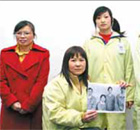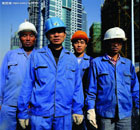Opinion
Macao mulls decade of progress
By Huang Xiangyang (China Daily)
Updated: 2009-12-18 07:34
 |
Large Medium Small |
MACAO: Macao's economic prosperity and social progress since the handover partly stem from its ability to properly handle its relationship with the central government, said Bai Zhijian, director of the Liaison Office of the Central People's Government in the special administrative region.
Other reasons for its success include the unswerving implementation of the "one country, two systems" policy and solid backing from the central government.
"Macao took the initiative in shouldering the responsibility of safeguarding national security," Bai said.
According to Article 23 of the Macao Basic Law, the SAR shall enact laws, on its own, to prohibit any act of treason, secession, sedition or subversion against the central government.
"By enacting the security law, the Macao government has made the Basic Law complete."
A draft security bill was first submitted to the Legislative Assembly in December 2008, and it was passed with a big majority in its first and second readings in January and February this year.
Hong Kong has yet to enact its own national security bill as required by the Basic Law.
Macao Chief Executive Edmund Ho said early this month at a seminar to mark the 10-year anniversary that "only when the nation's interest is safeguarded can Macao's interest be guaranteed".
Wu Bangguo, the top legislator, said on the same occasion that the security law "has enhanced the national concept in Macao society and safeguarded the country's core interest".
People-oriented policy
Bai also praised the Macao SAR government for its "people-oriented" policy. "The SAR government has properly handled its relationship with Macao people," he said.
The SAR government has managed to let every member of society share the wealth and prosperity brought by Macao's economic boom, said Bai.
Thanks to its rapid economic development after the handover, Macao now ranks among the richest in the world. With a per capita GDP of more than $39,000, it is second only to Japan in Asia.
Macao people's livelihoods have improved markedly, with per capita monthly income reaching 8,500 patacas ($1,060) in 2008, as compared to 4,900 patacas 10 years ago.
Last year, to help ease the impact of the global financial crisis, the government launched a massive cash handout program, depositing 5,000 patacas in each permanent resident's bank account. This year, the cash infusion was raised to 6,000 patacas.
"All these have ensured that Macao people live a rather comfortable life," Bai said.
As for the central government's support of the SAR, Bai noted that decision-makers, during last year's central economic work conference, held separate meetings to discuss how best to help Macao and Hong Kong survive the global financial crisis. Opinions from the two regional governments were also solicited before the central government rolled out rescue packages.
The nine measures to help Macao included the construction of a cross-sea bridge linking Hong Kong, Zhuhai and Macao, expanded renminbi business in Macao and encouraging the SAR to play a part in Guangdong's development of Hengqin island, which is just a few hundred meters away from Macao but three times larger.











